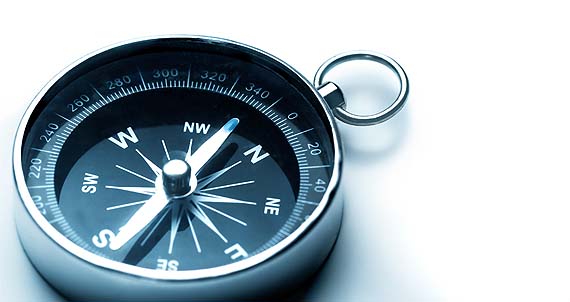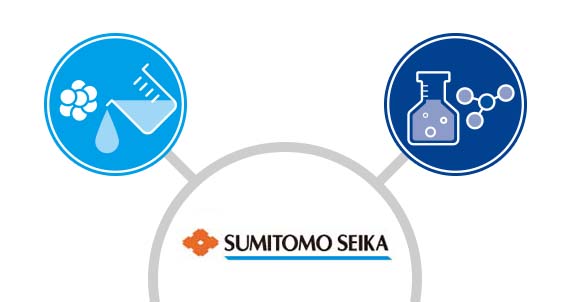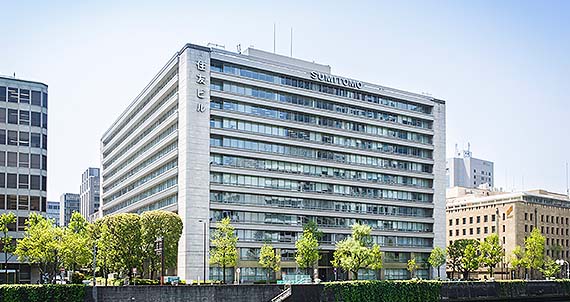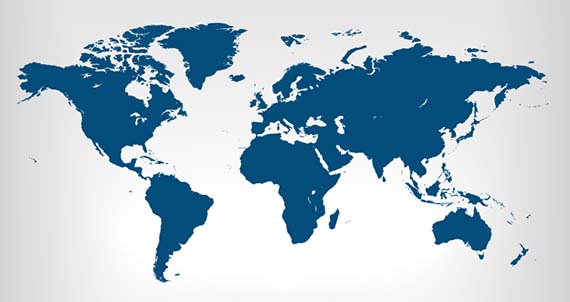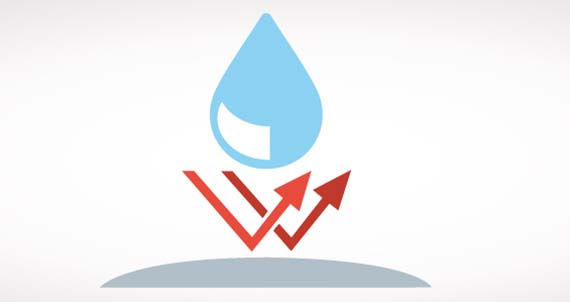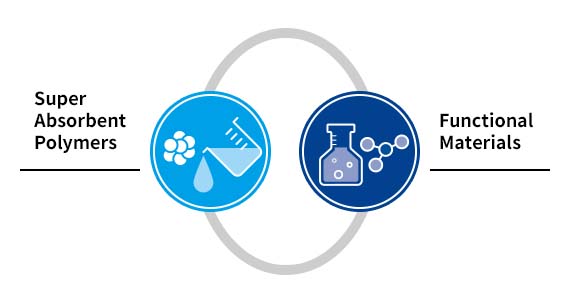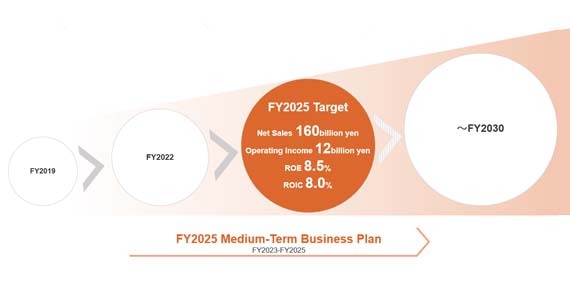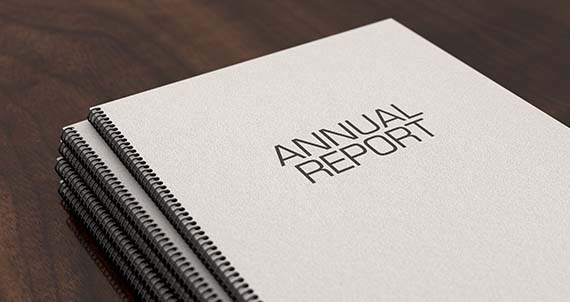Risks
Risk Management
Sustainable growth requires us to quickly discover and deal with risks that could impede the achievement of our business goals. To enable us to do so, and also to react swiftly and appropriately when risks do surface, we need to develop and operate a risk management system. We have established the Internal Control Committee, chaired by the president, which discusses the operational status for the risk management system, and the status of measures to counter the Group’s major risks. For these major risks, the Internal Control Committee considers the business environment and changes in society, and reviews risks as necessary, and details of discussions and deliberations are reported to the Board of Directors, and are overseen.
Crisis Management
If a crisis were to occur, depending on its severity, we would set up a response team headed by the president or an executive officer, which would verify the extent of the damage and forecasts of the impact on our business, study measures to prevent the spread of damage and to recover, and then implement those countermeasures. If the crisis is something that affects the public, we will publicly announce externally it without delay. To keep the damage of any crisis to a minimum, and to maintain our business or recover as quickly as possible, we have formulated business continuity plans and internal regulations connected to crisis responses.
Business Risks
The following are matters affecting our business that have the potential to majorly impact stakeholders. While the items presented here are those deemed to be risks as of the end of the current consolidated fiscal year, this is not an exhaustive list of all risks connected to the Sumitomo Seika Group.
1. Risks Related to Management Decisions and Business Strategies
⑴ Market environment
- In the markets in which we develop our business, we predict that our product lines may continue to face a harsh pricing environment due to various reasons, such as entry into those markets by competitors from inside and outside Japan or inflows of cheap imported goods. In China, meanwhile, one of the most important markets for super absorbent polymers, our Group’s competitive environment could intensify due to factors such as price competition, the commoditization of super absorbent polymers resulting from quality improvements in locally manufactured products or other causes, and the lower number of babies being born.
⑵ Raw material procurement
- For some of the raw materials we purchase, we are reliant on specific suppliers. While we are endeavoring to reduce the risk of not being able to purchase major raw materials, such as by increasing the number of suppliers we use, the price at which we can buy in raw materials, fuels or other items is subject to rapid fluctuations in price due to changes in the supply-demand balance or market situations. If the price at which we buy in materials were to rocket, this could have an adverse effect on our business performance.
⑶ Exchange rate fluctuations
- We conduct production and sales activities globally and fluctuations in exchange exert an influence on our foreign-currency sales or procurement costs for raw materials. As a result, we strive to minimize such risks through measures such as exchange contracts. For our overseas consolidated subsidiaries, when we create our consolidated financial statements, the exchange rate at the point of conversion could impact the value in Japanese yen. In particular, fluctuations in exchange rates for the renminbi could impact our performance.
⑷ Impairment loss on non-current assets
- We apply accounting standards for impairment losses on non-current assets. Should the management environment take a drastic turn for the worse or similar, and we would find it hard to recover our investment in our non-current assets, we would record this as an impairment loss when we become aware of it, and that could have a negative effect on our business results and financial situation.
⑸ Climate change
- The progression of climate change will have a serious impact on our potential for sustainable growth. As global warming advances, extreme weather phenomena will become more common and more severe, which could affect our performance by causing a halt to our production activities at production sites in coastal areas, such as through rising sea levels. Similarly, increasingly strict government policies and regulations on GHG emissions could lead in a dramatic increase in costs associated with our response to this (expenses associated with introducing renewable energy, switching to low-carbon fuels, amending manufacturing processes, introducing energy-efficient equipment, etc.), which could negatively impact our financial situation. Furthermore, in a carbon-neutral world, we foresee changes to market values and the focus of competition, such as with greater demand for products and services that have minimal environmental impact. If we take too long to respond to such trends, we could lose our competitive edge for our products and services, and this could have a significant impact on our performance. For more details, see the sections on “Climate Change Initiatives” and “Theoretical Scenario Analysis”.
2.Risks Related to Accounting and Finance
⑴ Retirement benefit liability
- Our employee retirement benefit expenses and liabilities are calculated based on actuarial assumptions such as the long term expected rate of return for pension assets or discount rates. A disparity between assumptions and actual results due to deterioration in the pension asset management environment or a decline in the share price of listed stocks contributed to the retirement benefit trust could result in an increase in future retirement benefit expenses, which could adversely affect the financial situation and operating results of our group.
3. Other Risks Related to General Management
⑴ Disasters or accidents
- To minimize potential negative factors attributable to halts to our manufacturing operations or accidents caused by our manufacturing equipment, we carry out periodic checks of all of our manufacturing equipment. However, should a natural disaster, accident, or other factors cause harm to things or people in one of our plants or the vicinity, there is a risk that this could hinder our business activities, result in high costs, and have a major negative effect on our reputation.
⑵ Information security
- Every year, we become more and more reliant on computer systems and networks in our business activities, and so we are working hard to protect systems and data with measures such as improvement of security system. However, should a power outage, natural disaster, cyber crimes such as attack by computer virus or hacking, damage our systems or networks, there is a risk that this could hinder our business activities, result in high costs, and have a major negative effect on our reputation.
⑶ Laws and regulations
- There is a chance that the countries in which we pursue business activities could, in the future, strengthen their laws and regulations toward environmental issues or chemical safety, and this could lead to new costs.
⑷ Personnel/labor
- Industrial accidents, the spread of infectious diseases or communicable diseases, have the potential to put a stop to our business execution, while worker human rights issues, mental health issues, or cases of harassment have the potential to worsen working environments. Any of these could lead to us being liable for damages.
⑸ Legal breaches and compliance
- If an infringement of laws or regulations in Japan or overseas, or any other case of compliance breach were to occur, we would lose the trust of society and could have to pay damages or other financial penalty. This could have a negative effect on our business results and financial situation.
⑹ Product quality
- We follow very strict quality control standards, that are globally recognized, as we manufacture a range of products, but this is no guarantee that all of our products will be free from defects and that a product recall will not be required in the future. If an extensive product-related incident were to happen, it could result in high costs, or it could have a major negative effect on our reputation.
⑺ Intellectual property risks
- We have accumulated a great deal of technologies and expertise that enable us to differentiate ourselves from our competitors, and strengthened our competitiveness in doing so, but some of our original technologies, products, and expertise cannot be fully protected in certain regions so there is a possible that we would not be able to effectively prohibit a third party from using our intellectual property to manufacture similar products. Moreover, as result of current or future disputes over intellectual property, there is a risk that a disadvantageous judgment could be made.
⑻ Human capital
- Our corporate group is built on diverse human resources, yet the working population in Japan is forecast to shrink due to factors such as low birthrates. If we were unable to secure the personnel we need for our business activities, due to a decrease in the number of people we recruit or an increase in the number of people leaving us, or if we were too slow in training the personnel who will lead our efforts toward growth in the medium term, we would be unable to achieve our business targets and this could negatively affect our business results.
⑼ Other
- In the many countries in which we have business activities there are a number of inherent risks, including changes to laws or regulations, or social chaos resulting from terrorism, war, disease, or other reason. Should one or more of these manifest, it could have a negative effect on our business results and financial situation.
BCP
Basic Policy
We will implement business continuity measures based on the following basic policy.
- Establish the safety of the Group's employees, their families, and local residents.
〈Safety of human life and cooperation with local communities〉 - Minimize damage in the event of unexpected turn of events.
〈Maintain the management of the company〉 - Work to restore and resume business operations as quickly as possible in order to ensure a stable supply of our products.
〈Build relationships of trust with customers and business partners〉


